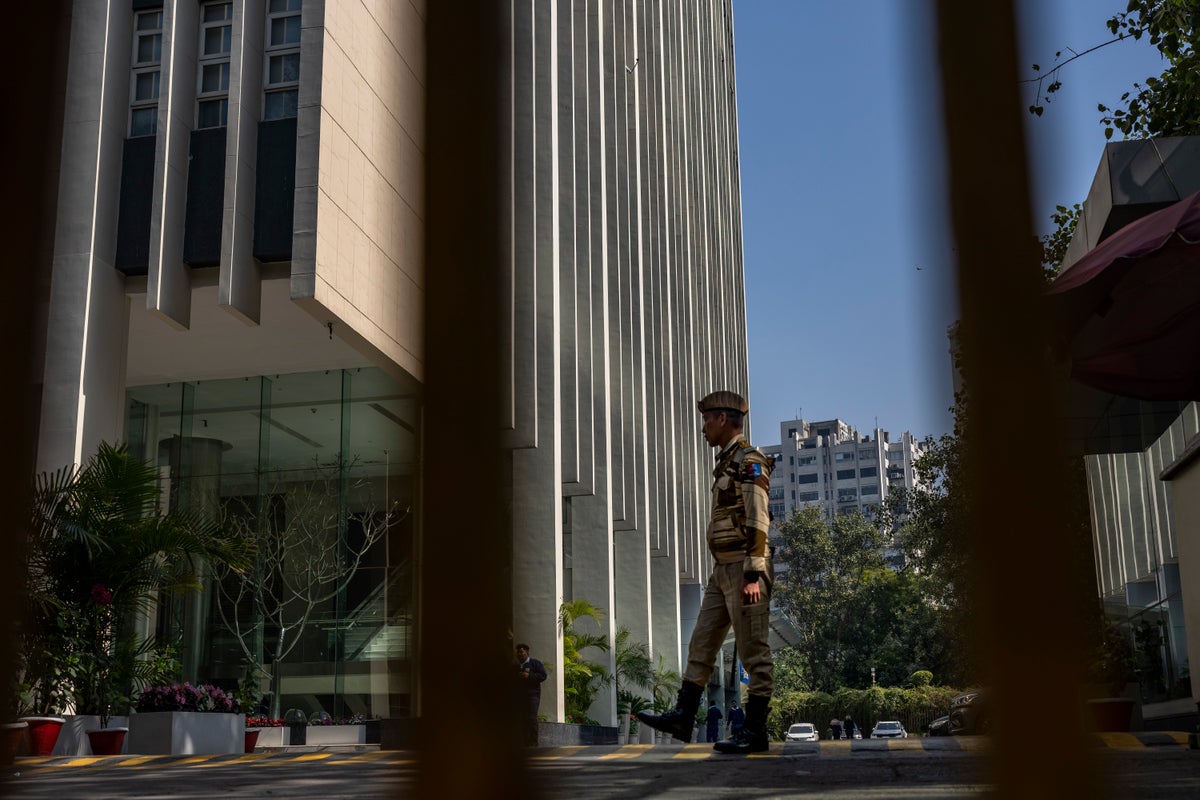
The British government has offered a limited defence of the BBC and its "editorial freedom" in its first substantive comments since the broadcaster’s offices in India were raided by tax authorities last week.
The Indian finance ministry accused the BBC of tax evasion last Friday after tax agents concluded a three-day-long “survey” of the broadcaster's offices in New Delhi and Mumbai.
In the House of Commons, it was the opposition Labour Party that criticised the action taken against the BBC in India most strongly, calling the raids “deeply worrying”.
It was also the first time that the Rishi Sunak government has confirmed that they have raised the issue with the Narendra Modi administration.
The tax raids last week were accompanied by a number of strong statements from senior officials in Mr Modi’s ruling BJP party, with a spokesperson calling the BBC the “most corrupt” organisation in the world.
Asked if the British government would defend the broadcaster over such criticisms, if not the tax raids themselves, foreign office minister David Rutley said: "We stand up for the BBC.”
He went on: "We fund the BBC. We think the BBC World Service is vital. We want the BBC to have that editorial freedom. It criticises us, it criticises the Labour Party, and it has that freedom that we believe is so important.
"That freedom is key, and we want to be able to communicate its importance to our friends across the world, including the government in India," the minister added.
The raids of BBC offices took place just a few weeks after the broadcaster aired a critical documentary on the 2002 Gujarat riots featuring a UK government assessment that prime minister Narendra Modi, who led Gujarat state at the time, was “directly responsible” for the ”culture of impunity” that allowed the religious riots to take place. In the violence that followed over 1,000 people – most of them Muslims – were killed.
Indian foreign minister Subrahmanyam Jaishankar on Tuesday questioned the timing of the documentary's release, calling it "politics by another means" and referring to the fact that Mr Modi will be fighting for a third term in India’s general election next year.
"I mean, come on, you think the timing is accidental? Let me tell you one thing -– I don't know if election season has started in India and Delhi or not, but for sure it has started in London and New York," the minister told news agency ANI.
He added: "We are not debating just a documentary or a speech that somebody gave in a European city or a newspaper edits somewhere – we are debating actually politics, which is being conducted ostensibly as media...."
Following the raids, the Indian finance ministry said officials found evidence indicating that "tax has not been paid on certain remittances which have not been disclosed as income in India by the foreign entities of the group", referring to the BBC.
Within India itself, opponents of Mr Modi as well as journalists and rights groups have criticised the tax "surveys" as a crackdown on freedom of speech and the press in the country.
Labour’s shadow minister for peace and disarmament Fabian Hamilton expressed concern over some BBC employees being held overnight for questioning during the raids.
"In a democracy with true media freedoms, criticism cannot be shut down unnecessarily and freedom of expression must be protected at all costs," he said.
"We are particularly worried about reports that suggest that BBC staff have been forced to stay in their offices overnight and have faced lengthy questioning."
DUP MP Jim Shannon called the raids a "deliberate act of intimidation" following the release of an "unflattering documentary about the country's leader".
The Strangford MP asked the minister whether the government would summon India’s high commissioner to the UK, Vikram Doraiswami, over the issue. Mr Rutley did not directly answer that question, only stating that “the UK’s support for media freedom is well known. Media freedom and freedom of speech are essential elements of robust democracies,” and that the government could not comment further on the “ongoing investigation” into the BBC’s tax affairs in India.
Labour’s Mr Hamilton referred to the raids as a form of “intimidation”, and asked what discussions the government has had with its Indian counterparts.
Mr Rutley said that it “is because of our broad and deep relationship with India that we are able to discuss a wide range of issues in a constructive manner with its government. As part of those conversations, this issue has been raised and we continue to monitor the situation.”
The two-part BBC documentary, which only aired in the UK, examined the prime minister’s relationship with Muslims, the country’s largest minority group.
The first part included a previously unpublished report from the UK Foreign Office at the time that held Mr Modi “directly responsible” for the “climate of impunity” that enabled the Gujarat violence in 2002 to take place.
New Delhi criticised the documentary and called it a “propaganda piece” that reflects a “continued colonial mindset”. The Indian government blocked the documentary from being shared online in India by issuing orders to both YouTube and Twitter to ban content related to it, using emergency powers under the country’s information and technology laws.
The BBC has defended its production and said that it has abided by the “highest editorial standards”.







